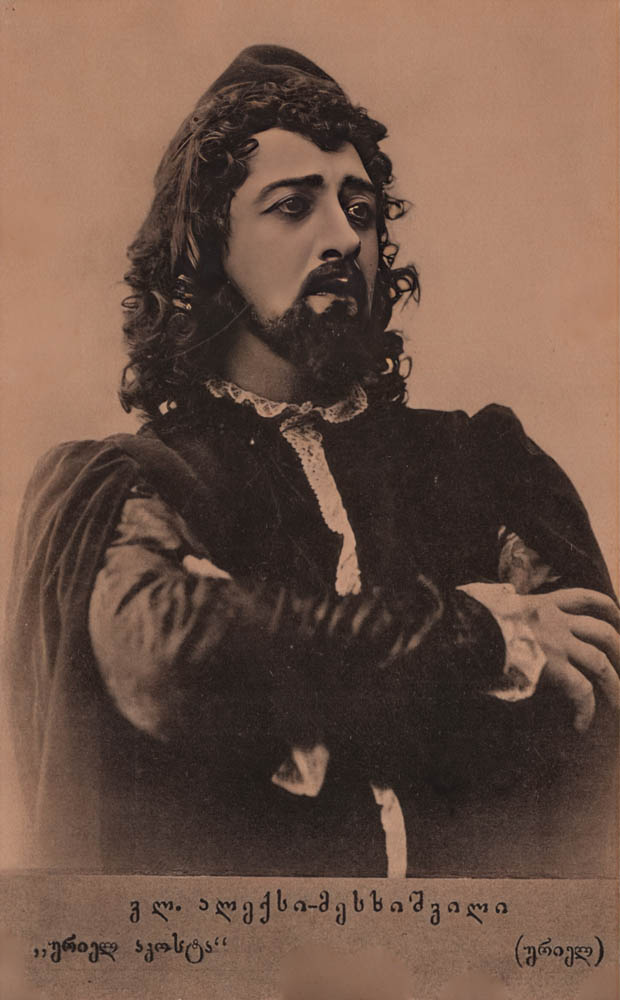Vladimir Sardionovich Alexi-Meshkhishvili was born in Tbilisi on February 28, 1857. His father, Sardion Alexi-Meshkhisvili, was a military doctor. Vladimir studied at a private boarding school in Tbilisi, and then at the medical faculty of Moscow University. He was unable to complete his education due to illness, so he returned to Tbilisi and began working as a teacher at the Telavi Girls’ School – his teaching lasted for three years, while simultaneously participating in a local amateur theater. From 1890 to 1896, Vladimir led a troupe of artists in Tbilisi, and from 1897 to 1906, he directed a troupe in Kutaisi. Alexi-Meskhišvili was very popular in Georgia. During his illness in 1903, the Georgian community raised funds to send him for treatment in Vienna. In 1905, Alexi-Meshkhishvili took part in revolutionary activities: he fought on the barricades and recited revolutionary poetry during rallies. Many of his productions were aimed against tyranny and social injustice. The most famous of them are “Gaius Gracchus” and “The Weavers” by Gerhard Hauptmann (a socio-political drama about class conflict in 19th century Germany); Alexi-Meshkhisvili played the leading roles in both plays. In 1907, he performed at the Moscow State Theater, then headed a troupe at the Tbilisi Theater, and from 1914 to 1915, he worked in Kutaisi. During these years, he staged several productions of world-famous works: Shakespeare’s “Hamlet,” Friedrich Schiller’s “The Robbers,” Victor Hugo’s “Ruy Blas,” playing the leading roles in these plays. During his stay in Russia from 1916 to 1918, he appeared in the films “Fathers and Sons” and “God’s Wrath.” Alexi-Meshkhishvili died on November 24, 1920, in Tbilisi. The Kutaisi Drama Theater (1940) was named in his honor. There is a street in Tbilisi named after him. He is buried in the Didube Pantheon of Writers and Public Figures.
Alexi-Meshkhishvili
